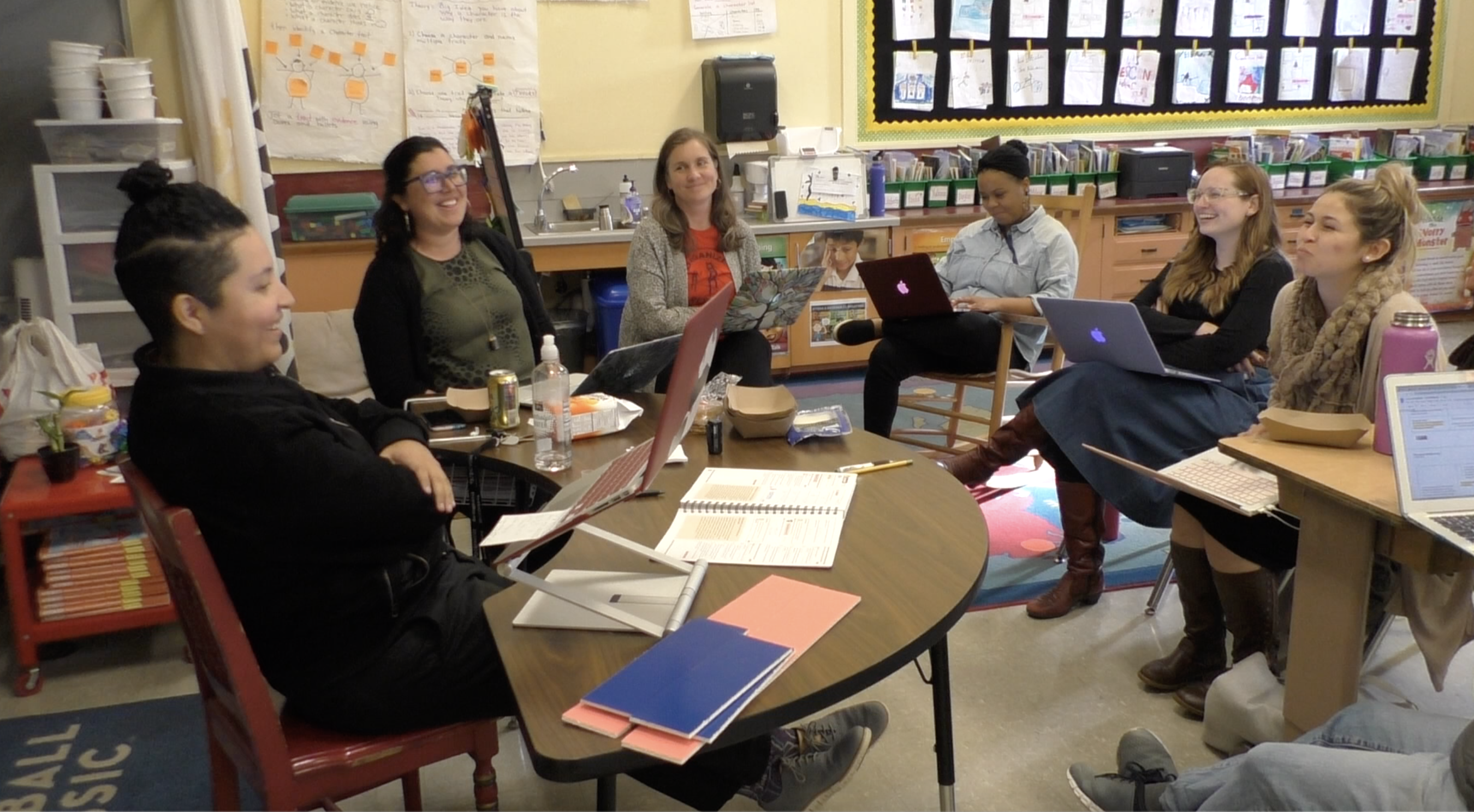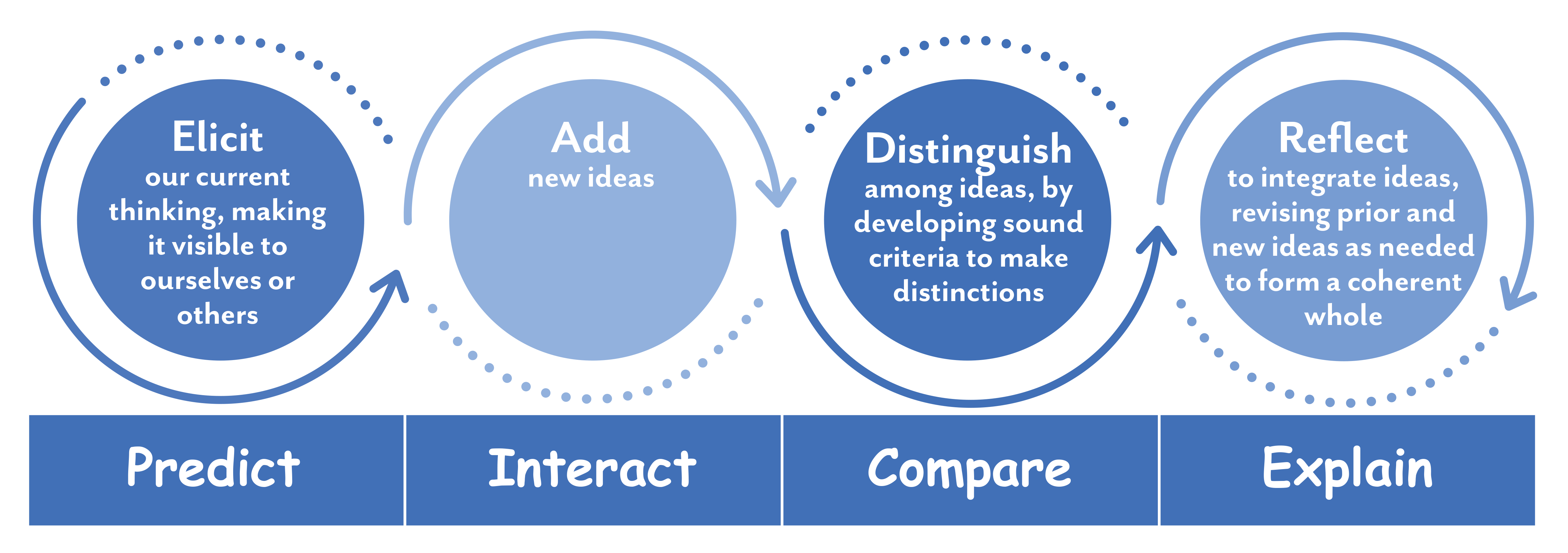Knowledge Integration Environment
| Knowledge Integration | Examples |
|---|---|
| In this video clip, the planning team works out what the term ‘unit fraction’ means, how their students understand units and why measurement units might provide a good context for learning fractions compared to prior approaches they have used. Notice the moves that support the team to elicit, add and distinguish ideas about units and about fractions representation. | Watch video clip |
|
In these two clips, teachers discuss readings and tasks from the Fractions Resource Kit, focusing on why linear measurement might help students understand fractions. Before watching the clips look at the NAEP task/Grade 1 task referenced by teachers.
In clip 1, teachers share ideas about how measurement supports understanding of equivalent fractions, of benchmark fractions and of the idea that smaller units are iterated more times to make a whole. In clip 2, teachers grapple with research from Van De Walle’s chapter on measurement* suggesting the value of having students make their own rulers and use them. The team connects this suggestion to their own (painful) experience having students make rulers; team members try to unpack why students attend to tick marks rather than the spaces between them. The whole team laughs when they realize that their own language (“more” instead of “longer”) calls attention to counting instead of length. This episode illustrates how teaching requires integration of ideas that initially may be independent: Teachers want students to see fractions as lengths on a number line, but have been referring to fractions as countable pieces. *Van de Walle, J. A., Karp, K. S., & Bay-Williams, J. M. (2013). Elementary and middle school mathematics: teaching developmentally. 10th ed. Boston: Pearson. |
Watch video clip part 1 Watch video clip part 2 |
References:
Gerard, L., Varma, K., Corliss, S. & Linn, M. (2011). Professional development for technology-enhanced inquiry science. Review of Educational Research, 81(3), 408–448.
Linn, M., Eylon, B., & Davis, E. (2004). The knowledge integration perspective on learning. In M. Linn, E. Davis, & P. Bell (Eds.), Internet environments for science education (pp. 29-46). Mahwah, NJ: Lawrence Erlbaum Associates.

